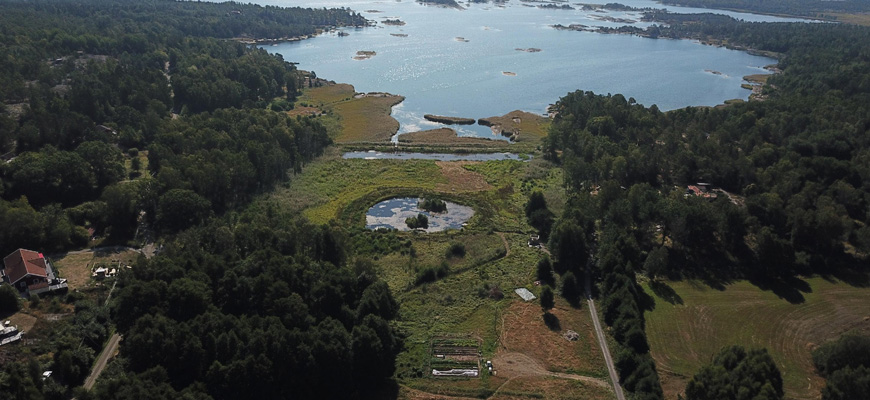Monitored wetlands reduce nutrient load

The importance of increased knowledge about wetlands and ecosystems
As much as 95% of the phosphorus and 70% of the nitrogen supplied to the Baltic Sea comes via waterways. Most of it originates from diffuse emissions from forests, land and buildings. Constructed wetlands and ecosystems can slow down the supply, but knowledge of these systems is low and they usually lack measurement and control.
Monitoring of wetlands around the Baltic Sea
KTH develops methods to electronically monitor wetlands around the Baltic Sea through sensors and systems for e-monitoring. Increased knowledge of the systems is needed for assessment and optimisation of the purifying effect. KTH wants to develop and test a system for e-monitoring of wetlands on Utö in Stockholm's southern archipelago, as a further development of an ongoing EU project within the Interregional Central Baltic .
The Swedish NGO Initiativ Utö has created a wetland at the outlet of a watercourse and restored the bay to recreate spawning grounds for fish - a so-called pike factory.
KTH's research will analyse the purification effect in this wetland with a unique location right by the Baltic Sea. This is done through conventional sampling and laboratory analyses, moreover KTH wants to design and evaluate a land-based electronic system for local monitoring of important parameters for the health of the Baltic Sea.
E-monitoring can provide much better knowledge of where and how the diffuse emissions occur and contribute to a data revolution in the coastal zone - precisely where the emissions occur at the meeting point between sea and land. In the long term, local data generation is necessary for a better design and management of wetlands as protective ecosystems around the Baltic Sea.
Joint effort between researchers and Utö residents
The project will be carried out as a preliminary study for approximately 12 months at the Department of Industrial Biotechnology together with Initiativ Utö, as well as with other KTH researchers within KTH's initiative for the Baltic Sea.
The team from KTH consists of associate professor Gunaratna Kuttuva Rajarao (project manager), professor Antonius van Maris, and research engineer Tobias Karlsson. Also taking part are Thomas Hjelm and Robert Cederlund, residents of Utö and leaders of the foundation Initiativ Utö.
